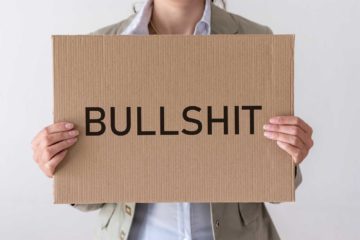by Jochen Szangolies

A proposition, like “it’s raining outside”, can either be true or false—it might be the case that it actually rains, or not. It is then seductive to think that somebody uttering such a proposition is doing nothing but making a factual claim, and in doing so, either tells the truth, or not. Furthermore, we might surmise that, in the case that the claim fails to actually hold, the utterer, proclaiming a falsehood, is lying. In doing so, however, we would be getting ahead of ourselves: there is both more to making a simple utterance than the mere proclamation of a fact, and to its veracity than lying or truth-telling. Let’s tackle these in turn.
First, when I tell you “it’s raining outside”, I not only make a claim about the world (that it is, in fact, raining outside), but also a claim about my own assertion: that it is, in fact, truthful; and thus, by extension, about myself: that I am a truth-teller. Consequently, you believing me does not just mean you believe something about the world, but also, that you believe something about my own relationship to truth, at least in this particular instance.
All of this means that simple facts about the world are never just simple facts about the world; inasmuch as they come to us indirectly, that is, not as immediately present in our own experience, they are elements of a complex web of beliefs and attitudes. Believing me to be an inveterate liar, you might well rather be inclined to believe that it’s all sunshine outside when you hear me blathering on about the drizzle. If you happen to know I’ve spent the last hour tinkering away in the cellar, you might not attach any particular value to my claim, believing me to be ignorant on the matter. Your judgment regarding the meta-claim of my assertion’s truthfulness affects your belief in its content: the world-picture you create based upon it varies with your assessment of my stance towards truth. Read more »

